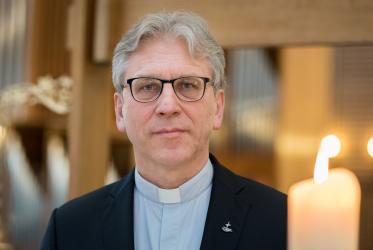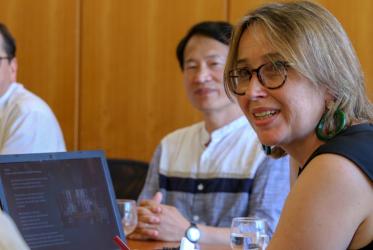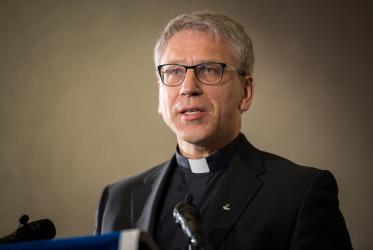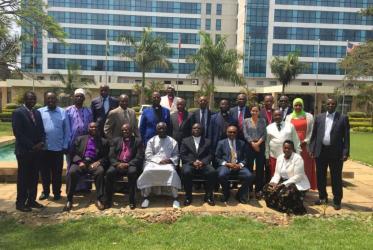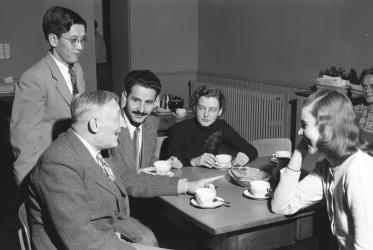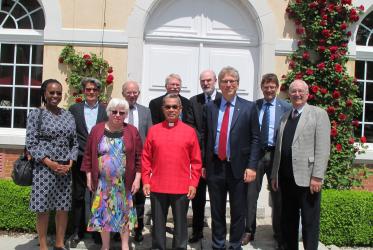Displaying 1 - 20 of 28
South Sudan Church leaders welcome new cabinet
15 March 2020
In Nigeria, WCC workshops focus on human rights
04 December 2017
African women embark on pilgrimage in Burundi
29 November 2017
WCC welcomes Muslim World League general secretary
09 November 2017
Tveit: “We are called to embrace the gifts of the others”
07 November 2017
WCC students study what makes a peace communicator
18 July 2017
“What can we contribute as a worldwide fellowship?”
06 March 2017
Bossey anniversary commemorates 70 years of heartfelt dialogue
28 September 2016
Hielke Wolters: Apostle of mission strategies
01 August 2016


